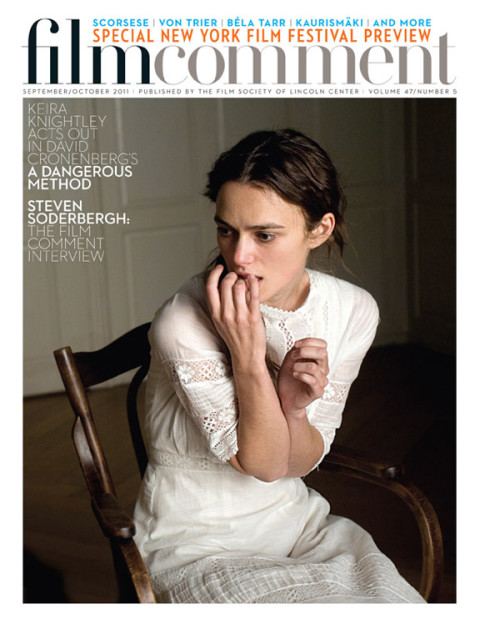
The word “cult” is never once uttered during Martha Marcy May Marlene’s 120 minutes. Like any pathology, it’s a concept that has never crossed the mind of the film’s eponymous protagonist, but to the outside observer its applicability is immediately apparent.
Martha (Elizabeth Olsen) doesn’t really know where she’s been for the past three years––on some farm in upstate New York, maybe Connecticut? As a victim of trauma, her ability to distinguish between memories and dreams has eroded. Retrieved from this limbo by her sister Lucy (Sarah Paulson), Martha explains her absence by saying that she’d been betrayed by “a guy,” readily authoring a substitute narrative of victimization. But it’s a narrative that’s no less true: her “family” at the farm is led by the wiry, enigmatic Patrick (John Hawkes) and consists mostly of women. The family’s beliefs are vague but decidedly anticapitalist; they share clothes, grow their own food, have group sex and group sing-alongs—and commit home invasions when they need money. While the latter three are not part and parcel of living out alternative economic models, they do betray the fact that the community is more Jonestown than a group of militant freegans who have chosen to live off the grid––these are broken, dissatisfied suburban kids who are being manipulated into serving a single man’s sexual and domestic labor needs. Martha’s incorporation into the family cult is revealed in fragments, with the standard breaking down and building back up of ego, renaming (hence “Marcy May”), physical punishment, and induction ritual (getting drugged and raped by Patrick). We also see Martha “handling” a new girl who’s barely 17, rubbing her back after the rape induction and assuring her that it was indeed special.
These glimpses of Martha’s recent past are elegantly interwoven with her painful reintegration into civilization at Lucy’s McMansion-style lakeside time-share. Lucy’s architect husband Ted (played perfectly by Hugh Dancy) alternates between genuine attempts at succor and complete disgust, speaking both to the difficulty of dealing with a significant other’s dysfunctional family members and to the fact that people who come from dysfunctional families frequently choose partners with significant character flaws of their own. Yet Ted’s outbursts, while cruel, are understandable: having forgotten social norms, Martha eats like someone who’s been institutionalized for decades, and comes in and sits on the couple’s bed in the middle of the night as they’re having sex.
A laundry list of social embarrassments large and small follow, but these failed interactions with her family aren’t the source of Martha’s paranoia and angst. She doesn’t understand, and therefore couldn’t care less. Rather, it’s her fear of her old family coming back for her. Unlike most cinematic representations of mental illness and interpersonal dysfunction, the film adopts a psychologically subjective structure. Due to the similarities between the time-share and the farm’s rural locations, the film is sometimes purposefully unclear as to where she is and if she’s Martha or Marcy May from scene to scene. Her senses collectively function as weapons to disarm her; like a wild animal, she frequently freezes and strains to listen as familiar sounds motivate flashbacks and then snap her back to the present. And also like a wild animal, this distress elicits a physical outburst: the soft cadence of pinecones hitting the side of her bedroom wall at her sister’s causes her to wet herself; she smashes up a jeep that looks like the one Patrick drove. These moments of ambiguity and confusion transmit anxiety in a leisurely, understated manner that is more affecting than any extended monologue or J-horror shock cut or imagined threat. With a diegesis mapped along the mental contours of its protagonist, Martha Marcy May Marlene harkens back to Pasolini’s notion of the cinema of poetry––and achieves it beautifully.








